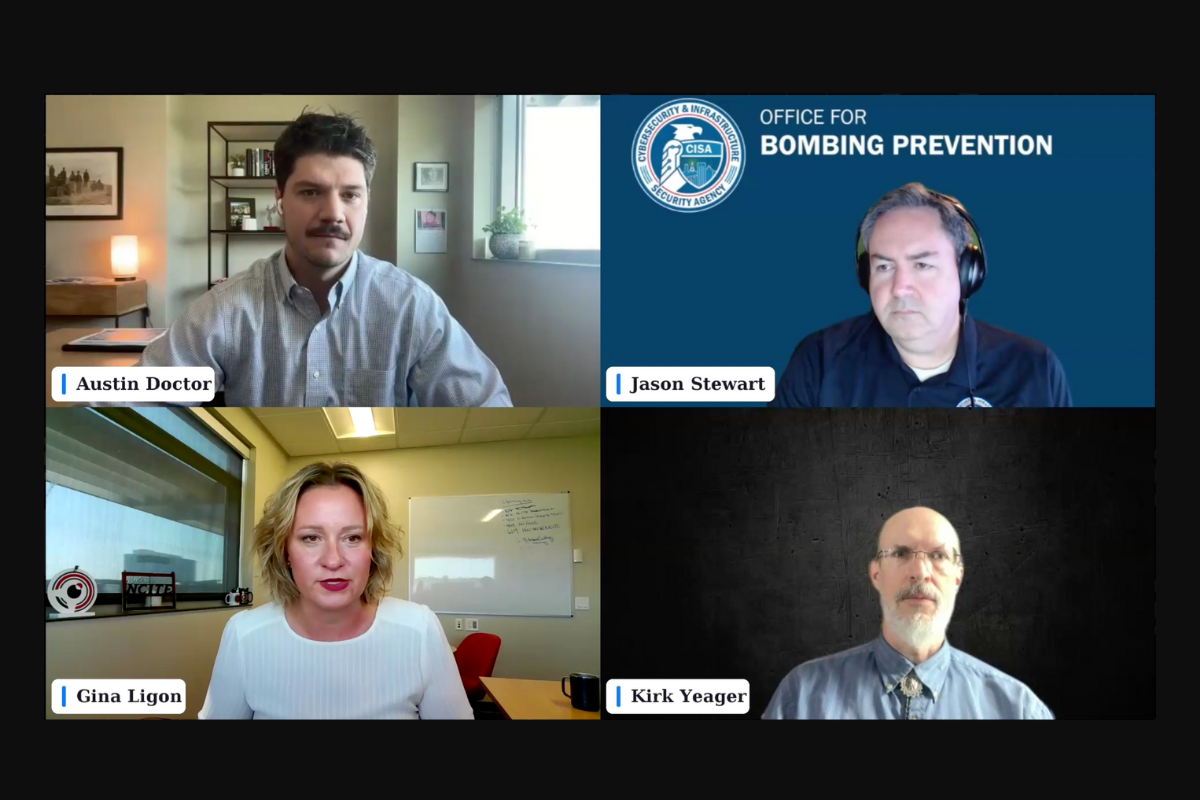RECAP: NCITE Webinar on Countering IEDs
- published: 2024/07/22
- contact: NCITE Communications
- phone: 402-554-6423
- email: ncite@unomaha.edu
- search keywords:
- improvised explosive devices
- IED
- NCITE

On July 18, NCITE hosted a panel discussion on new research examining terrorist use of improvised explosive devices (IEDs). Moderated by NCITE Director Gina Ligon, Ph.D., the panel consisted of:
- Austin Doctor, Ph.D., NCITE head of counterterrorism research initiatives and principal investigator on the IED project
- Jason Stewart, deputy branch chief with the Cybersecurity and Infrastructure Security Agency (CISA) Office for Bombing Prevention
- Kirk Yeager, Ph.D., chief explosives scientist with the FBI
Key Takeaways
Counter-IED (C-IED) analysis requires a multidisciplinary team
to examine perpetrators’ motives, means, and opportunities. The new NCITE report is the product of expertise from political scientists, criminologists, chemists, psychologists, and others, and includes input from more than 20 U.S. government departments, agencies, and organizations.
Three Study Areas for Countering IEDs: Motives, Means, and Opportunities
Motives: Yeager spoke on how perpetrator motives are “timeless.” Actors often feel oppressed by large power systems and feel threatened based on their values and belief systems. Analyzing perpetrator motives and ideologies can help predict future threat situations.
Means: Perpetrators often face (1) knowledge and (2) material barriers.
1) “The knowledge barrier is gone,” said Yeager, explaining that the internet and programs like ChatGPT make it incredibly easy to find and share bomb-making literature.
2) In the U.S., bomb-making material is relatively easy to access and purchase, and technologies such as additive manufacturing allow greater flexibility for building components.
Opportunities: Perpetrators now have more options to execute viable attacks because of technological advances such as unmanned aircraft systems (UAS). Securing locations, particularly soft targets, requires innovation across response networks.
The IED threat is vast and increasing, and it requires a proportionate response.
“Just in the first half of 2023, we saw more than 600 IED incidents worldwide across 30 different countries,” said Doctor. “The U.S. doesn’t experience an attack like the (Oklahoma City) or the Boston Marathon bombings every year, but I want to underscore that that’s not a result of lack of trying on the side of terrorists. It more reflects the diligent work of U.S. intelligence and law enforcement.”
Threat analysis frameworks need to keep up with the rapidly evolving UAS threat as these systems become more affordable and have more accessible user interfaces.
Information sharing is a major challenge between relevant stakeholders and government agencies.
As an academic center, NCITE is uniquely positioned to identify best practices for collecting, managing, and disseminating such information.